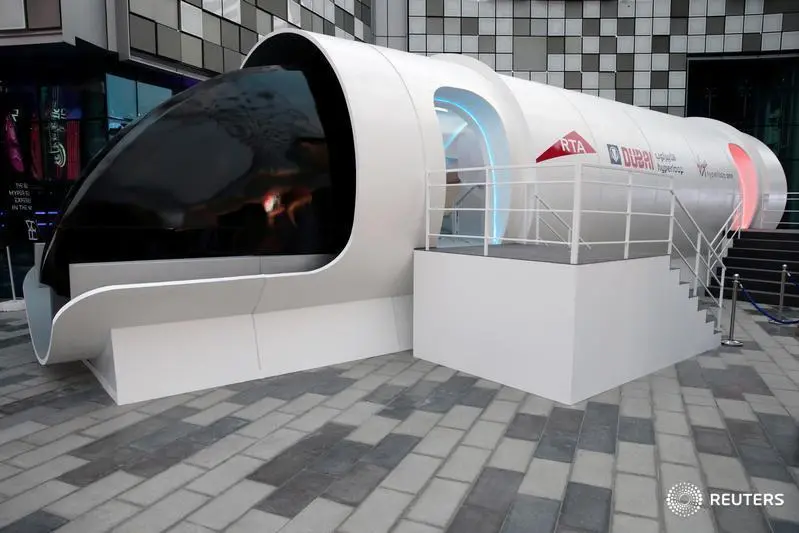PHOTO
The commercial operations of super high-speed hyperloop transportation in the UAE’s capital is likely to be realized only by 2023, however the trial runs could begin as early as 2020, Bibop Gresta Chairman of Hyperloop Transportation Technologies (HyperloopTT) told Zawya.
With tubes assembled and pumps installed, HyperloopTT will begin the process of integrating their full-scale passenger capsule for passenger trials as early as 2020 for the multi-billion-dollar commercial project connecting Abu Dhabi with Dubai and Al Ain, the chairman said.
Gresta, who was in Dubai recently to attend an event – Dubai Artificial Intelligence in Sports – said his organisation is ahead of its peers in commercialisation of the hyperloop technology and several tests are going on before the new-age transportation is ready for use in 2023 by the commercial passengers in the UAE.
Headquartered in Los Angeles, HyperloopTT demonstrated in June this year its transportation mechanism at its research facilities in Toulouse, France. The company showed the world’s first completed full-scale track system as it is undergoing optimization and integration prior to the construction of the commercial system in Abu Dhabi.
With around 150 kilometres of the hyperloop system among Al Ain, Dubai and Abu Dhabi, the cost of the project is estimated at $40 million per km, and overall costs of the UAE’s project would be around $6 billion.
Hyperloop transportation may look like a huge investment that may be used by a limited number of people and would take 15 minutes to cover the distance between Dubai and Abu Dhabi with the maximum speed of 1,000km/hour, but Gresta said that hyperloop is sustainable and cost-effective in the long-term despite being a capital-intensive project.
“The investment may look huge, but the big question is how much time it will take to recoup the investments in a hyperloop project. Ticket sales, however, contribute only a small part to the overall revenue,” Gresta said.
Hyperloop systems are cheap to maintain and with the help of a new business model where services are integrated to create value, capital and operational expenditures can be diminished, he said.
“We will bring down the energy costs through the efficient application of solar panels and we’ll offer premium services. The hyperloop transport will be accessible for all, but there will be premium services akin to Amazon Prime where a customer pays a little extra for additional services,” Gresta added.
According to Gresta, HyperloopTT is adopting crowd funding and collaborative models to build the best technology infrastructure with sustainability and green energy being an integral part, as well as providing ancillary services such as in-house entertainment to enhance the hyperloop experience.
“In the future, we’ll see more collaborative models of work where value would be shared across communities, and the human talent won’t be valued for the time spent in an office but rather on the individual contribution in creating a value for a company or a pool of companies,” he added.
HyperloopTT is working in 12 countries around the world including the UAE, the United States, Brazil, Europe and India to bring the futuristic, efficient and sustainable transportation system to reality.
(Writing by Syed Atique Naqvi, editing by Seban Scaria seban.scaria@refinitiv.com)
Our Standards: The Thomson Reuters Trust Principles
Disclaimer: This article is provided for informational purposes only. The content does not provide tax, legal or investment advice or opinion regarding the suitability, value or profitability of any particular security, portfolio or investment strategy. Read our full disclaimer policy here.
© ZAWYA 2019




















